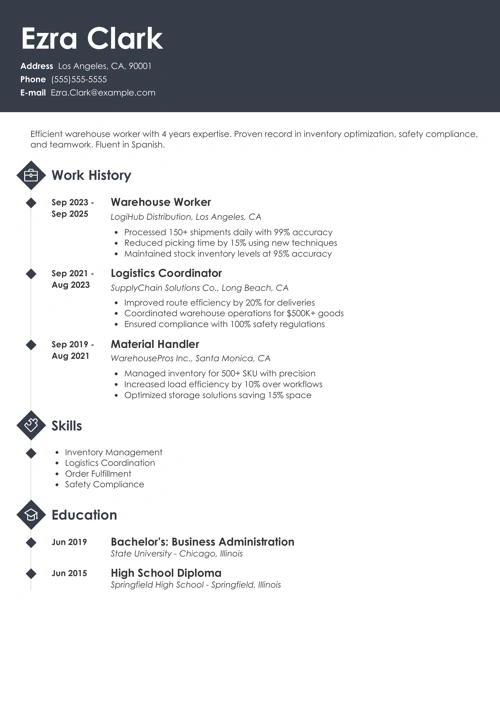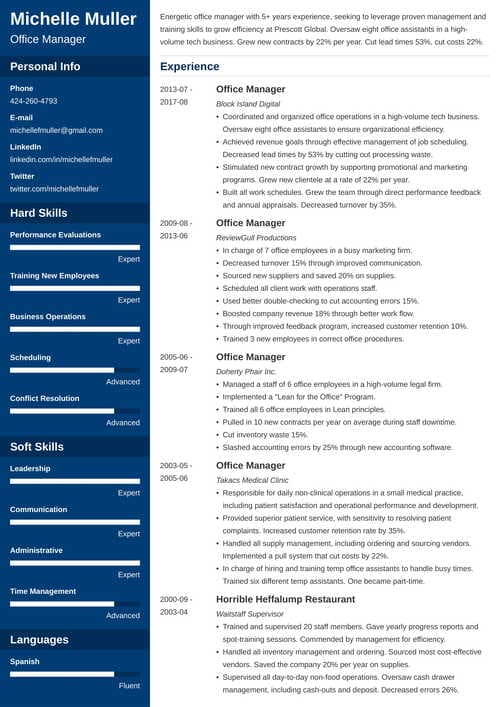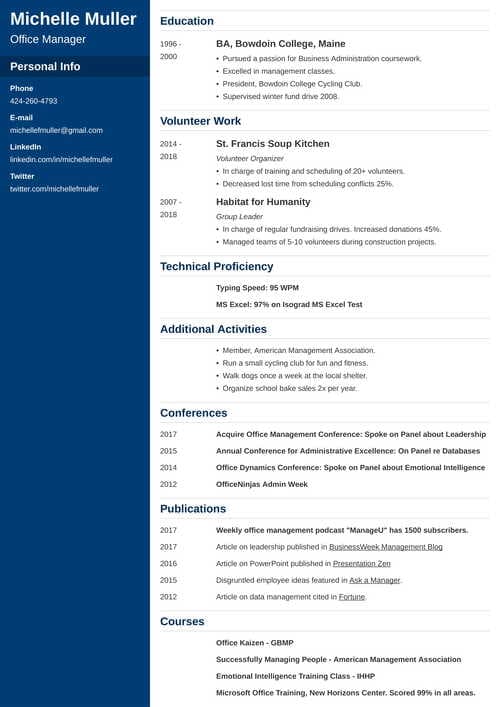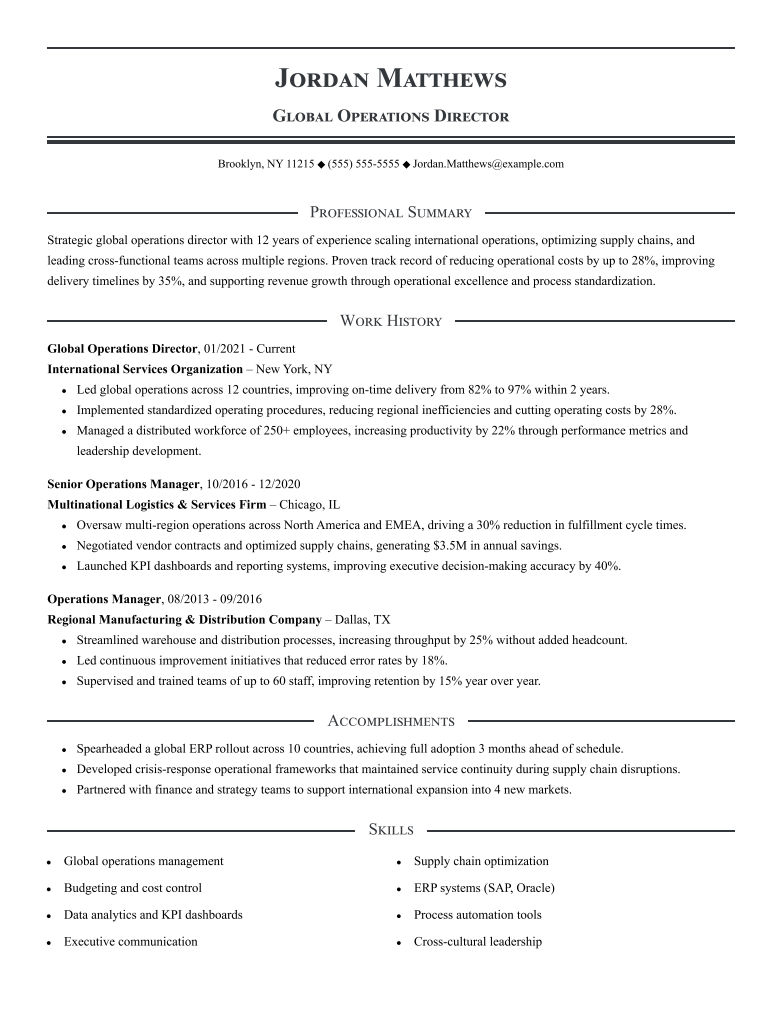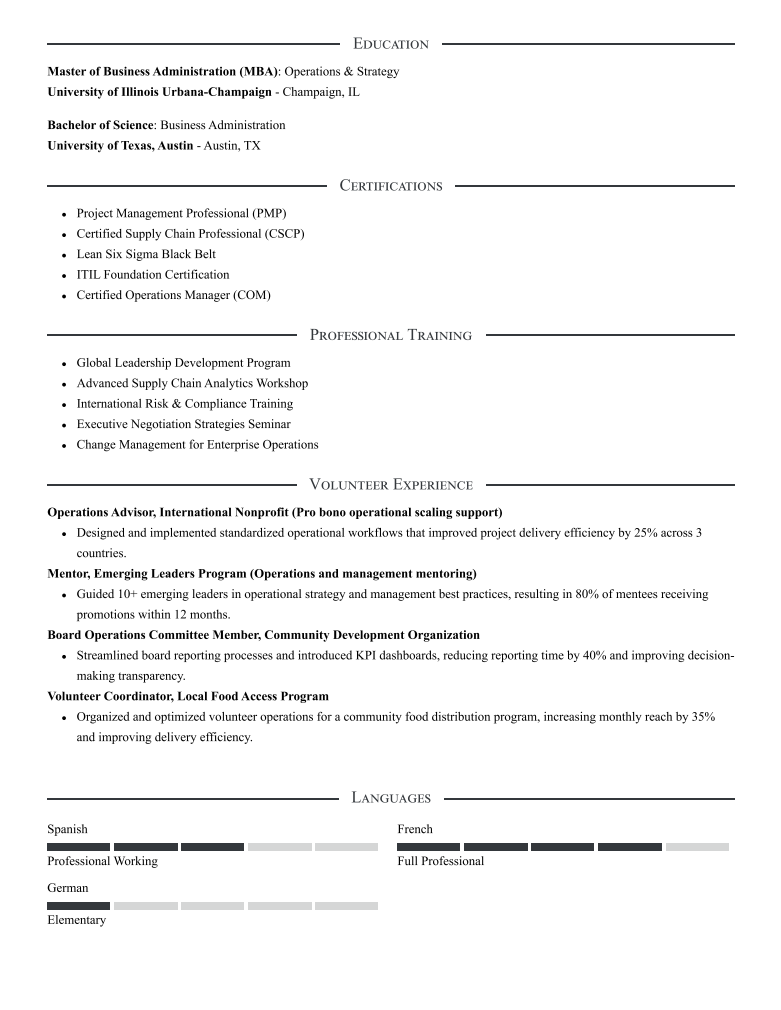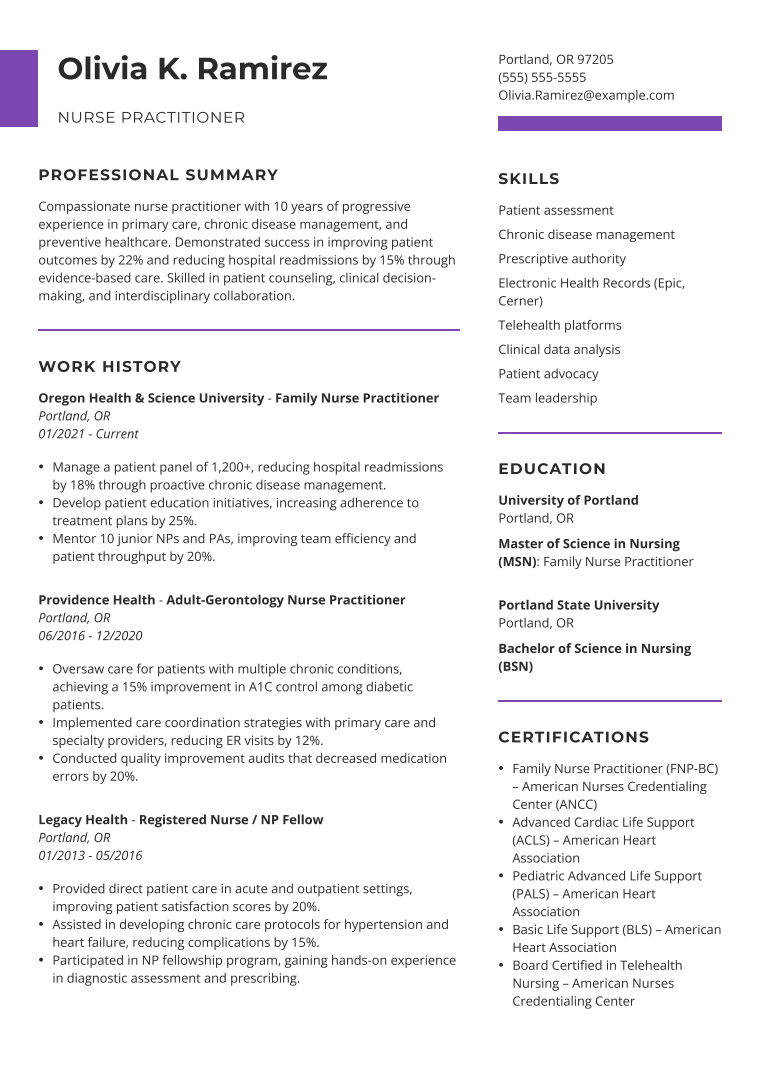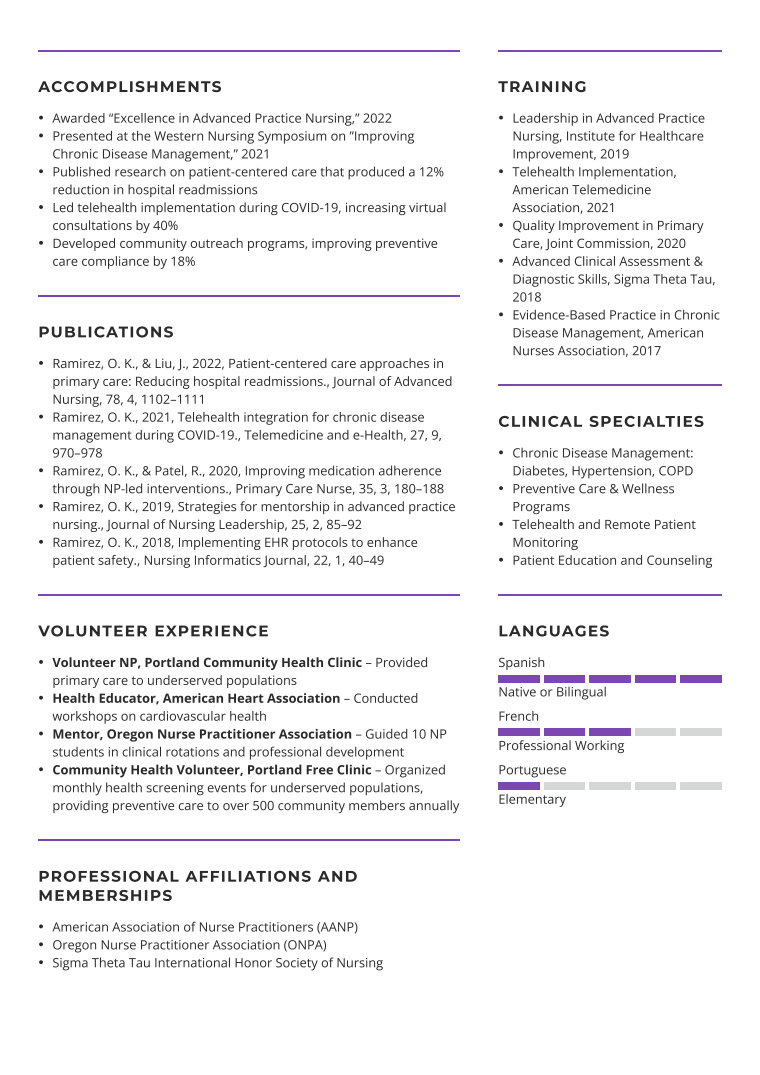Yes, a resume can be two pages. While one-page resumes are still popular, they’re not always enough to show your full experience, skills, and achievements.
In this guide, we’ll explain when a two-page resume makes sense, who should use one, and how to format it the right way. You’ll also learn how to keep your resume clear, focused, and recruiter-friendly, so every page works in your favor.
Want to save time and have your resume ready in 5 minutes? Try our AI Resume Builder. It’s fast and easy to use. Plus, you’ll get ready-made content to add with one click. See 20+ resume templates and create your resume here.
Sample resume made with our builder—See more resume samples here.
Can My Resume Be 2 Pages?
Yes, your resume can be two pages, but only if the second page truly adds value. Like every job search decision, this one should be strategic. A longer resume isn’t better by default, and you shouldn’t stretch it just to fill space.
Before choosing a two-page resume, ask yourself these questions:
- Do you have more than 10 years of relevant experience?
- Do you have relevant qualifications that deserve their own sections, such as certifications, publications, or volunteer work?
- Did the employer ask for a complete overview of your work history and skills?
If you answered “yes” to one or more of these, a two-page resume may be the right choice for you.
Who Should Use a 2 Page Resume
Two-page resumes work best for job seekers with an extensive work history. If you’ve gained over a decade of relevant experience, sought-after skills, and noteworthy accomplishments, a one-page resume may not be enough to show everything you bring to the table.
Here are the types of candidates who benefit most from a two-page resume:
- Experienced professionals: If you’ve held multiple roles, managed major projects, or advanced into leadership positions, a second page gives you space to highlight your growth and impact.
- Specialists and technical professionals: Engineers, IT professionals, researchers, healthcare workers, and other specialists often need room to list certifications, tools, systems, and advanced training. A second page lets you present these clearly.
- Academics, consultants, and project-based workers: If your career includes publications, contracts, major clients, or long-term projects, a two-page resume helps organize this information in a way that’s easy for employers to scan.
In short, a two-page resume works best when you have meaningful, job-related information that strengthens your application. If every section you include adds value, using a second page can work in your favor.
If you’re still unsure how long your resume should be, use this quick table as a guide:
|
Experience Level & Role Type |
Resume Length |
|
Entry-level (0–5 years) |
1 page |
|
Mid-career (5–10 years) |
1 or 2 pages, depending on leadership positions and achievements. |
|
Experienced (10+ years) |
2 pages |
|
Students or recent graduates |
1 page |
|
Executives |
2 pages or more |
|
Technical specialists |
2 pages |
|
Project-based professionals |
2 pages |
Pro tip: If you're applying for an international role, a CV may be a better option. Knowing when to use a CV vs. a resume can help you present your skills and experience in the best possible way for your target role.
How to Format a 2 Page Resume
When writing your resume, follow these two-page formatting rules:
- Repeat your resume header on both pages. Include your name and contact information at the top of each page. This makes it easy for hiring managers to reach you and keeps your resume looking polished.
- Place your most important details on the first page. Any outstanding achievements and your most recent work experience should always be front and center. Leave additional sections and older experience for the second page.
- Number your pages. Add page numbers (for example, “Page 1 of 2”) to keep your resume organized, especially if it’s printed or shared digitally.
- Keep the formatting consistent. Use the same professional font, margins, spacing, and heading styles on both pages. Consistent formatting helps your resume feel cohesive and easy to read.
- Avoid awkward page breaks. Don’t let section headers or single bullet points sit alone at the bottom of a page. Each section should flow naturally onto the next page.
- Use white space wisely. Leave enough spacing between sections so your resume doesn’t look crowded.
2 Page Resume Examples
Check out these two-page resume examples to find inspiration for your own:
Global Operations Director
Nurse Practitioner
Making a resume with our builder is incredibly simple. Follow our step-by-step guide, use ready-made content tailored to your job, and have a resume ready in minutes.
When you’re done, our Resume Checker will score your resume and show you exactly how to improve it.
Key Takeaways
Before you start writing your two-page resume, remember these key points:
- A two-page resume is acceptable when you have enough relevant experience, credentials, and achievements to fill it meaningfully.
- One page is still best for students, recent graduates, and early-career professionals with limited experience.
- Use two pages only when it helps you tell a stronger, more complete career story.
- Always place your most important skills, accomplishments, and recent roles on the first page.
- Keep formatting consistent and clean to make your resume easy to scan.
- Every section on both pages should add value and support your application.
Frequently Asked Questions
Is 2 pages too long for a resume?
In many cases, two pages are not too long for a resume. The key is to decide whether the details you're including on the second page are essential. Everything in your resume should help convince employers you're the right fit for the role and present a cohesive snapshot of your career.
Is a 2 page resume OK for 5 years of experience?
Two-page resumes are okay for five years of experience if you have relevant additional sections to include.
For example, if you work in a technical role in healthcare (e.g., cardiovascular technologist or biomedical engineer), a detailed certifications section can highlight your expertise and impress employers.
In most cases, a one-page resume is ideal for five years of experience. Focus on your most relevant skills, work history, and achievements to show the hiring manager that you can perform the role and deliver results.
Is it better for a resume to be two pages or double-sided?
A two-page resume is better than a double-sided resume in most situations. Employers and recruiters usually review resumes digitally, where double-sided printing doesn’t apply. Even when resumes are printed, single-sided pages are easier to scan, copy, and organize.
Using two separate pages also ensures that your most important information is easy to find and doesn’t get overlooked. With a double-sided resume, key details may end up hidden on the back, reducing their impact.
About Zety’s Editorial Process
This article has been reviewed by our editorial team to make sure it follows Zety's editorial guidelines. We’re committed to sharing our expertise and giving you trustworthy career advice tailored to your needs. High-quality content is what brings over 40 million readers to our site every year. But we don't stop there. Our team conducts original research to understand the job market better, and we pride ourselves on being quoted by top universities and prime media outlets from around the world.


